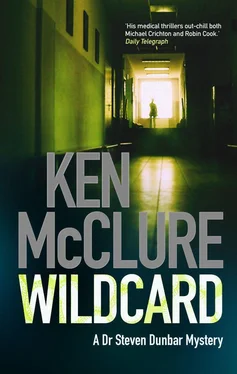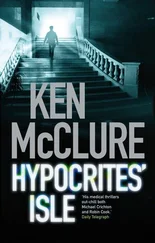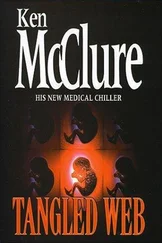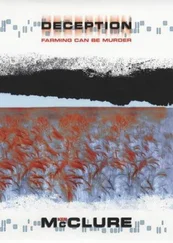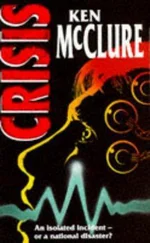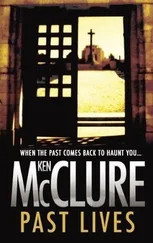Ken McClure - Wildcard
Здесь есть возможность читать онлайн «Ken McClure - Wildcard» весь текст электронной книги совершенно бесплатно (целиком полную версию без сокращений). В некоторых случаях можно слушать аудио, скачать через торрент в формате fb2 и присутствует краткое содержание. Жанр: Триллер, на английском языке. Описание произведения, (предисловие) а так же отзывы посетителей доступны на портале библиотеки ЛибКат.
- Название:Wildcard
- Автор:
- Жанр:
- Год:неизвестен
- ISBN:нет данных
- Рейтинг книги:4 / 5. Голосов: 1
-
Избранное:Добавить в избранное
- Отзывы:
-
Ваша оценка:
- 80
- 1
- 2
- 3
- 4
- 5
Wildcard: краткое содержание, описание и аннотация
Предлагаем к чтению аннотацию, описание, краткое содержание или предисловие (зависит от того, что написал сам автор книги «Wildcard»). Если вы не нашли необходимую информацию о книге — напишите в комментариях, мы постараемся отыскать её.
Wildcard — читать онлайн бесплатно полную книгу (весь текст) целиком
Ниже представлен текст книги, разбитый по страницам. Система сохранения места последней прочитанной страницы, позволяет с удобством читать онлайн бесплатно книгу «Wildcard», без необходимости каждый раз заново искать на чём Вы остановились. Поставьте закладку, и сможете в любой момент перейти на страницу, на которой закончили чтение.
Интервал:
Закладка:
‘We do have a very sick passenger, sir. More than that I can’t say right now, but please be patient.’
‘Patient be damned. There’s something going on here and we deserve to be told. Just what are you keeping from us? Tell us what’s wrong with him.’
‘I’m not a doctor, sir-’
‘But he is,’ said the man angrily, gesturing down the aisle with his thumb. ‘What did he say it was?’
‘Look, I’m sorry, I can’t really discuss-’
‘It all makes sense now,’ interrupted the man. ‘He wanted nothing to do with him, did he? He buggered off to his own seat pretty smartish, as I recall. Just what the hell’s wrong with this guy? Bugger this — I’m going to go back there and ask him myself.’
He started to undo his seatbelt but Judy was spared an argument to stop him by an exclamation from his wife, whose eye had been caught by flashing blue lights outside the window. ‘Oh my God, Frank,’ she exclaimed, ‘there are spacemen out there!’
The hubbub died as passengers looked out of the windows and saw that the plane had been surrounded by emergency vehicles, their lights blinking into the night sky. In front were a number of men standing on the tarmac: they wore orange suits, which covered them from head to foot. The flashing lights reflected off their visors.
‘Hello, everyone, this is the captain again,’ said the calm, friendly voice on the cabin intercom. ‘I understand that when the airport buses arrive we will all be taken to a reception centre, where we’ll be given more information about the situation and the opportunity to make contact with friends and family. Thank you for your patience. I hope it won’t be too long before we can all be with them. Please remain seated until the cabin crew instruct you otherwise.’
The captain’s voice was replaced by Vivaldi’s Four Seasons.
The sight of what was on the tarmac outside seemed to have a sobering effect on the passengers. The general air of belligerence was replaced by anxiety and an acceptance of the situation. Angry protests and muttered threats of compensation claims were supplanted by real fear of the unknown.
Barclay was the first to be taken from the aircraft. He was enveloped in a plastic bubble by two orange-suited men and carried down the steps to the tarmac, where he was loaded into a waiting ambulance. The passengers immediately behind Barclay for four rows and those in the rows in front were next to leave. They were directed down the front steps to an airport bus driven by another orange-suited man. The smell of disinfectant was everywhere; the floor of the bus was awash with it. There was a short hiatus while a decontamination crew boarded the aircraft and sealed off the newly evacuated area with plastic sheeting before spraying it all down thoroughly. The remaining passengers were then evacuated through the rear door on to more waiting buses. The flight crew were the last to leave the aircraft. They were ushered on to a separate bus to follow the others to the emergency reception centre. They looked back as the bus moved off, and saw that their aircraft was being sprayed down both outside and in.
‘Wonder what happens now?’ said the captain quietly.
‘The word “quarantine” springs to mind,’ said the first officer.
‘Shit.’
‘Can’t be too careful.’
‘Suppose not.’
‘Any idea how long?’ asked Judy.
The first officer shook his head. ‘Maybe they won’t keep everyone, just those who were closest to chummy or had contact with him.’
‘A comfort,’ said Judy ruefully.
‘Come on, Jude, won’t be so bad. Think of all that daytime television.’ The first officer smiled.
‘I think I’d rather have the disease,’ retorted Judy.
‘You two did well, handling that situation,’ the captain told Judy and Carol. ‘Couldn’t have been easy.’
‘I’d like to say it was nothing really,’ said Judy. ‘But I think it was one of the worst experiences of my life. He seemed to be bleeding everywhere.’
‘Ditto,’ said Carol. ‘I once considered nursing as a career and now I’m awfully glad I didn’t. Trolley-dollying isn’t all it’s cracked up to be, but having to deal with that sort of thing day in, day out? No thank you.’
Passengers who had had no contact with Barclay before or during the flight were allowed to leave the reception centre after giving their home addresses and being instructed to contact their GP should they feel at all unwell. Passengers sitting closer to Barclay were subjected to hospital quarantine as what the authorities called ‘a sensible precaution’. To this group were added the two stewardesses and Dr Geoffrey Palmer, twenty-six people in all.
Humphrey Barclay died four days later. His fever did not abate, so he was never conscious of the plastic-bubble world he inhabited in the special unit of the hospital or of the nurses in spacesuits who did their best to make him comfortable through his last hours on earth. He did not see his wife, his two daughters, his parents or his dreaded in-laws before he died, due to the strict no-visitors rule in the special unit. He never got the chance to file his report on Ndanga to his superiors at the Foreign Office, but his death spoke volumes.
Senior Stewardess Judith Mills died eight days after Barclay, one day before Mrs Sally Morton, the passenger who had been sitting next to Barclay, and two days before Dr Geoffrey Palmer. There was a scare over Carol Bain when she became unwell after five days, but it proved to be just a cold. Geoffrey Palmer was the last of the people from the aircraft to die, but he was not the last to succumb to the virus. One of the nurses looking after Barclay became infected, despite the protective clothing, and she also died.
‘African Killer Virus Contained’ announced The Times. No further cases had been reported or were expected, according to health officials, it said; the situation was under control. The papers had kept up a daily assault on their readers, some of the tabloids initially predicting a plague that would sweep through the capital just as the bubonic plague had done in the seventeenth century. The more thoughtful articles concentrated on just how easy it was these days for viruses lurking in the heart of the African jungle one day to be transported to the West the next, courtesy of high-speed air travel.
The relatively low death toll and the quick containment of the virus left the papers that had predicted a more extreme scenario looking rather silly, although one of them expertly diverted attention by going on the offensive and demanding to know exactly what the virus was. Its readers, it maintained, had ‘the right to know’. It was a line of attack that the others had missed because it was in fact true that there had been no official statement about the identity of the virus. It was also true that there had been no clamour to know. The ‘new African diseases’, as many of the papers had called them, were generally thought to be just that, and therefore of no real great concern to readers in Chingford or Surbiton.
The Foreign and Commonwealth Office, London
‘They’re right, you know,’ said Sir Bruce Collins, putting down the paper. ‘We still don’t know the identity of the virus that did for poor old Barclay and the others.’
‘I thought they were pretty sure it was Ebola fever, sir,’ said one of the other eight people seated round the table.
‘That was and is an assumption,’ said Collins. ‘It’s probably the correct one, I grant you, considering all the symptoms, but we don’t have the official lab report yet.’
‘They’re taking their time, aren’t they?’
‘Apparently the scientists can only work on such viruses under what they call BL4 conditions. All the samples had to be taken to the government defence establishment at Porton Down for analysis. Anyway, what we have to decide now is whether or not the Foreign Secretary’s trip to Ndanga can go ahead.’
Читать дальшеИнтервал:
Закладка:
Похожие книги на «Wildcard»
Представляем Вашему вниманию похожие книги на «Wildcard» списком для выбора. Мы отобрали схожую по названию и смыслу литературу в надежде предоставить читателям больше вариантов отыскать новые, интересные, ещё непрочитанные произведения.
Обсуждение, отзывы о книге «Wildcard» и просто собственные мнения читателей. Оставьте ваши комментарии, напишите, что Вы думаете о произведении, его смысле или главных героях. Укажите что конкретно понравилось, а что нет, и почему Вы так считаете.
